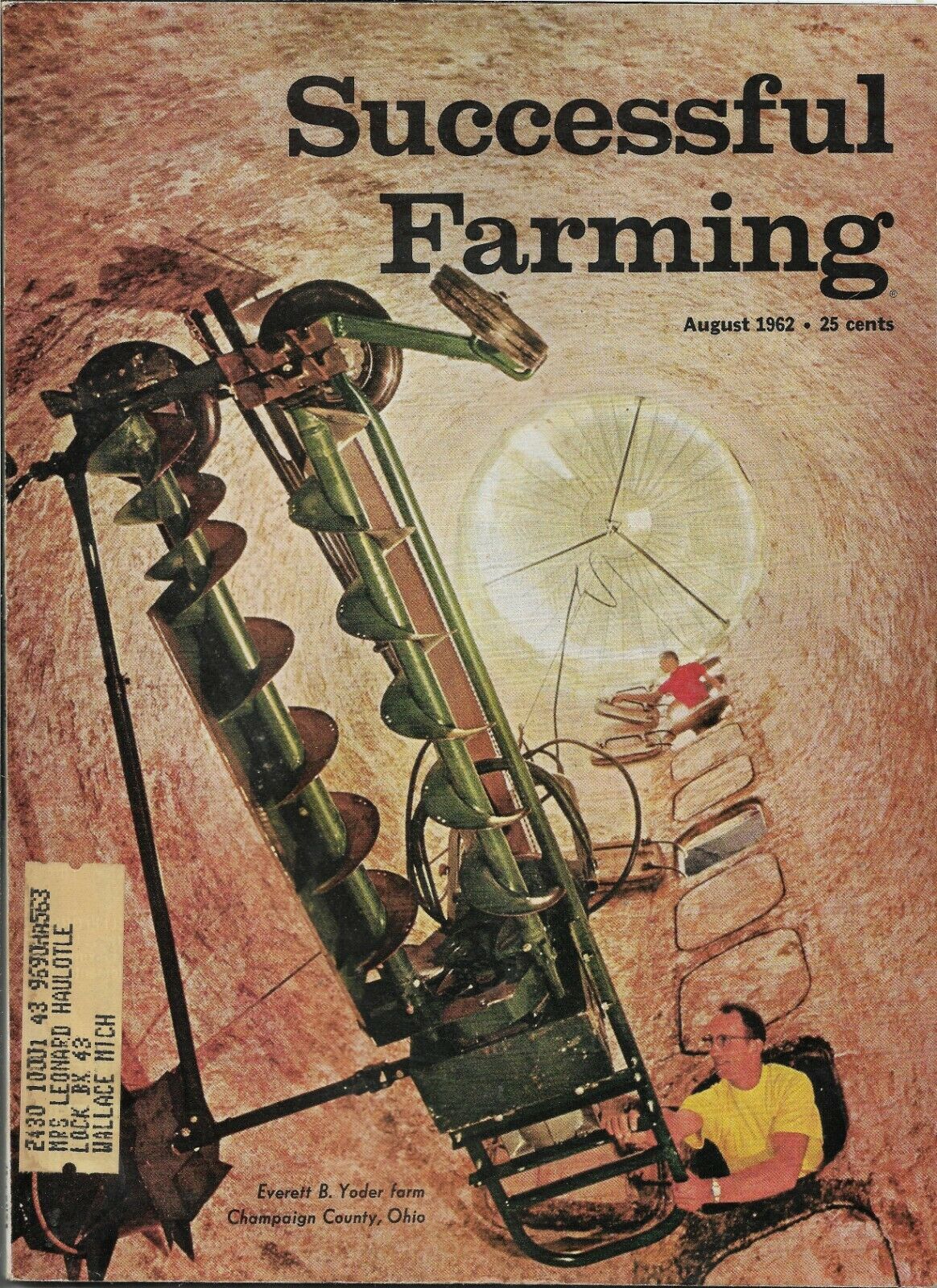Discover Secrets Why Farming Was Successful

Imagine a world without the lush green fields that stretch as far as the eye can see, the golden hues of wheat swaying in the breeze, or the sweet, earthy aroma of freshly tilled soil. How did our ancestors turn vast, untamed lands into bountiful agricultural havens? Dive into the fascinating realm of farming development and explore why was farming successful in shaping the course of human civilization and sustainable farming practices we employ today.
The Foundations of Agricultural History
Agricultural history is a tapestry of innovation, hard work, and sheer determination. When humans transitioned from nomadic hunter-gatherers to settled farmers around 10,000 years ago, they laid the groundwork for modern society. This shift was not merely an economic change but a cultural and technological revolution that altered the very fabric of human existence.
The Power of Land Cultivation
Land cultivation was the cornerstone of farming success. Our ancestors understood the importance of preparing the earth to yield its fruits. They developed techniques to till the soil, add nutrients, and irrigate the land. The success stories in farming often begin with the careful selection of fertile plots and the implementation of effective land management strategies. When I think of land cultivation, I see it as the farmer's canvas, each furrow and ridge a stroke of genius that brings life to the soil.
Early Techniques and Innovations
Early farming methods were as rudimentary as they were ingenious. Primitive tools like wooden plows pulled by draft animals were among the first innovations that allowed for large-scale land cultivation. Add in rudimentary irrigation systems, such as canals and terraces, and you have the makings of an agricultural revolution. These innovations not only increased yields but also supported the growth of larger communities and the eventual rise of civilizations. Understanding *why was farming successful* means recognizing the incremental advancements that paved the way for today's agricultural practices.
The Role of Sustainable Farming Practices
Sustainable farming is not a new concept; our ancestors were the original eco-warriors. They recognized the importance of maintaining the health of the land to ensure long-term productivity. Techniques like crop rotation, intercropping, and natural pest control were integral to their farming strategies. Think of it as a dance between humans and nature, where each step is carefully calculated to keep the harmony intact. Sustainable farming ensures that we can continue to reap the benefits of the earth without depleting its resources.
The Scientific Approach to Farming
As farming developed, so did the scientific understanding of soil and plant life. Thinkers like Justus von Liebig in the 19th century revolutionized agriculture by identifying the key elements needed for plant growth. This scientific approach led to the development of fertilizers and the refinement of farming techniques, making agriculture more efficient and productive. Every answer to why was farming successful invariably leads us back to the blend of ingenuity and scientific inquiry that has driven its progress.
Modern Success Stories in Farming
Today's farming success stories are a testament to the resilience and adaptability of the human spirit. From vertical farming in urban settings to precision agriculture that uses drones and satellites, modern farmers are pushing the boundaries of possibility. Technologies like IoT (Internet of Things) sensors and AI-driven farming practices are enabling us to cultivate land more efficiently and sustainably. As you delve into the world of modern agriculture, you’ll discover that the spirit of innovation that began thousands of years ago is very much alive.
So, what can we learn from these past and present successes? It’s clear that the key to successful farming lies in a combination of knowledge, innovation, and a deep respect for the natural environment. From the earliest methods of land cultivation to the advanced technologies of today, the journey of agricultural history is one of continuous learning and adaptation.
Conclusion
Farming’s success is woven into the very fabric of human history. From the humble beginnings of land cultivation to the sophisticated techniques of today, we've come a long way. Understanding why was farming successful helps us appreciate the ingenuity and perseverance of our ancestors and inspires us to continue innovating. Whether you're a seasoned farmer or just curious about the agricultural history, there's always more to explore and learn. So, let’s dive deeper into the rich tapestry of farming development and discover the secrets that have made it a cornerstone of human civilization. Click through to explore more success stories in farming and the latest trends in sustainable farming.
FAQs
1. What were the first farming tools used by early humans? Early humans used basic tools like wooden hoes, digging sticks, and stone axes to till the soil and plant seeds. These rudimentary implements laid the foundation for the more advanced farming tools we use today.
2. How did early farmers manage irrigation? Early farmers utilized natural water sources like rivers and streams, diverting water using canals and terraces. They also employed methods like rainwater harvesting to ensure a steady supply of water for their crops.
3. What are some examples of sustainable farming practices from the past? Practices like crop rotation, where different types of crops are grown in succession, and intercropping, where multiple crops are grown together, were commonly used. These methods helped maintain soil fertility and control pests naturally.
4. How has technology transformed modern farming? Modern farming has been revolutionized by technologies such as precision agriculture, which uses GPS and drones to monitor and manage crops. IoT sensors and AI-driven systems allow for more efficient use of resources and better yields.
5. What role did agriculture play in the development of civilizations? Agriculture allowed for the transition from nomadic lifestyles to settled communities, which in turn fostered the growth of cities and the development of complex societies. It provided a stable food supply, enabling populations to grow and develop other aspects of culture and technology.
```
0 Response to " Discover Secrets Why Farming Was Successful"
Post a Comment